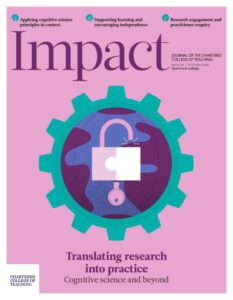Jon Tarrant, Creator of physbang.com and former Head of Sciences (retired), UK
Multiple-choice questions (MCQs) are carefully designed to identify key knowledge but they generally rely on either rewarding correct answers or penalising wrong answers (Lesage et al., 2013). There is normally no record of students who hesitated between the correct answer and a well-designed distractor. Hearing students comment ‘I was going to put that but I changed my mind’ reveals valuable information that the assessment has missed, as does the admission ‘I got that right and it was just a guess’. This case study follows the development of a way in which to capture confidence information and looks at how it can be used to provide targeted feedback. The potential benefits of encouraging students to indicate how confident they are in their answers have previously been summarised (Curtis et al., 2013) and reviewed in detail (Novacek, 2017). The greatest benefit resides in being able to provide be
Join us or sign in now to view the rest of this page
You're viewing this site as a guest, which only allows you to view a limited amount of content.
To view this page and get access to all our resources, join the Chartered College of Teaching (it's free for trainee teachers and half price for ECTs) or log in if you're already a member.











